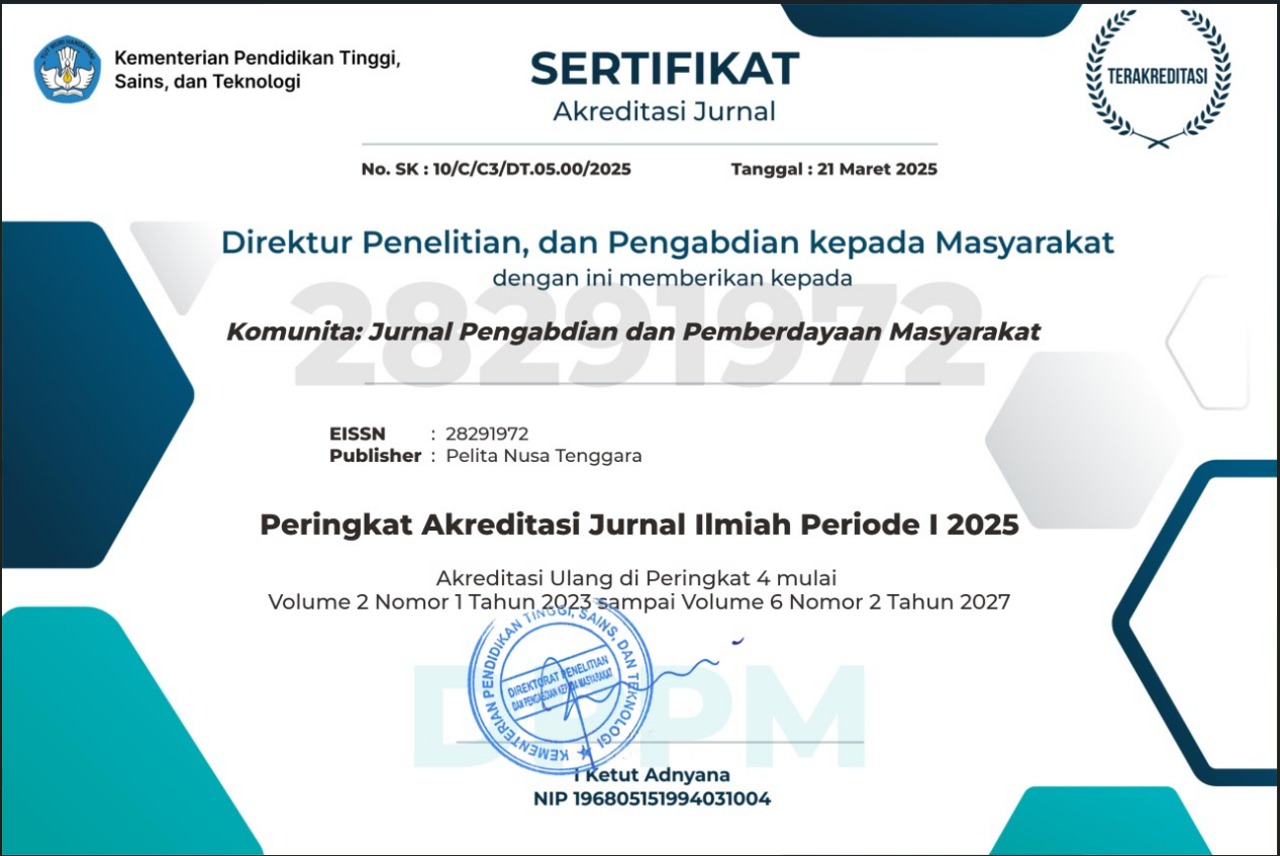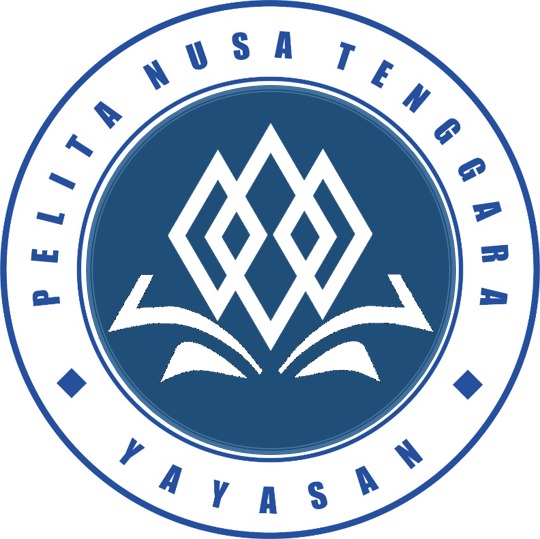Implementation Independent Curriculum on Competencies Professionalism of RA Teachers in Bandar Lampung
Abstract
The Independent Curriculum has been officially designated as the national curriculum for the 2024/2025 academic year, as outlined in KMA No. 347 of 2022. However, early childhood Islamic institutions (RA) under the Ministry of Religious Affairs remain underserved in professional training, creating a gap in curriculum readiness. This study aimed to enhance RA teachers’ capacity to implement the Independent Curriculum through a structured mentoring program focusing on curriculum design and teaching module development. Using the Asset-Based Community Development (ABCD) approach, the program engaged 25 RA/PAUD teachers in Bandar Lampung through six online sessions and one offline workshop. The training covered differentiated learning, operational curriculum (KOM) development, and the integration of P5PPRA (Project Strengthening Profile of Pancasila Students and Rahmatan Lil Alamin). Results indicate significant improvement in teachers’ understanding of learner-centered pedagogy, assessment, and the alignment of vision-mission with instructional goals. Two institutions produced complete KOM documents, while others demonstrated partial progress. The program also fostered reflective teaching practices, collaborative planning, and integration of local culture and religious values into instructional design. In conclusion, sustained mentoring can bridge the gap in curriculum implementation at the early childhood level, promote teacher agency, and support systemic transformation aligned with the values of Islamic education. These findings underscore the importance of long-term, context-based professional development for successful curriculum reform.
References
Chan, C. K. Y. (2023). A comprehensive AI policy education framework for university teaching and learning. International Journal of Educational Technology in Higher Education, 20(1), 38. https://doi.org/10.1186/s41239-023-00408-3
Dabić, M., Maley, J., Dana, L.-P., Novak, I., Pellegrini, M. M., & Caputo, A. (2020). Pathways of SME internationalization: A bibliometric and systematic review. Small Business Economics, 55(3), 705–725. https://doi.org/10.1007/s11187-019-00181-6
Dychkovskyy, tepan I., & Ivanov, S. V. (2020). Festival Tourism as Part of International Tourism and a Factor in the Development of Cultural Tourism. Informacijos Mokslai, 89, 73–82.
Faizah, S. N., Dina, L. N. A. B., & Khairiyah, U. (2024). Participatory Action in Optimizing the Operational Curriculum of Educational Units containing the Profile of Pancasila and Rahmatan lil Alamin. Amalee: Indonesian Journal of Community Research and Engagement, 5(1), Article 1. https://doi.org/10.37680/amalee.v5i1.4492
Howes, C., Burchinal, M., Pianta, R., Bryant, D., Early, D., Clifford, R., & Barbarin, O. (2008). Ready to learn? Children’s pre-academic achievement in pre-Kindergarten programs. Early Childhood Research Quarterly, 23(1), 27–50. https://doi.org/10.1016/j.ecresq.2007.05.002
Jamilah, I., Murti, R. C., & Khotijah, I. (2023). Analysis of Teacher Readiness in Welcoming the “Merdeka Belajar” Policy. AL-ISHLAH: Jurnal Pendidikan, 15(1), Article 1. https://doi.org/10.35445/alishlah.v15i1.3085
Kubiszyn, T., & Borich, G. D. (2024). Educational Testing and Measurement. John Wiley & Sons.
Miller, T. (2018). Developing numeracy skills using interactive technology in a play-based learning environment. International Journal of STEM Education, 5(1), 39. https://doi.org/10.1186/s40594-018-0135-2
Mourtzis, D., Boli, N., Dimitrakopoulos, G., Zygomalas, S., & Koutoupes, A. (2018). Enabling Small Medium Enterprises (SMEs) to improve their potential through the Teaching Factory paradigm. Procedia Manufacturing, 23, 183–188. https://doi.org/10.1016/j.promfg.2018.04.014
Mulyadi, D., & Mardiana, R. (2022). Sekolah Penggerak: Does Curriculum Design Made Fit with the Program? Adpebi International Journal of Multidisciplinary Sciences, 1(1), Article 1. https://doi.org/10.54099/aijms.v1i1.292
Munadi, M., & Khuriyah. (2023). The Extracurricular Activities and Student Development of Secondary School: Learning from Indonesia. International Journal of Education and Practice, 11(1), 23–34.
Muyassaroh, I., Saputri, A. E., Saefudin, A., Djumhana, N., Rengganis, I., & Darmayanti, M. (2023). Teachers’ Perception and Readiness Toward IPAS Learning Implementation of the Merdeka Curriculum. DWIJA CENDEKIA: Jurnal Riset Pedagogik, 7(3), Article 3. https://doi.org/10.20961/jdc.v7i3.80728
Pak, K., Polikoff, M. S., Desimone, L. M., & Saldívar García, E. (2020). The Adaptive Challenges of Curriculum Implementation: Insights for Educational Leaders Driving Standards-Based Reform. AERA Open, 6(2), 2332858420932828. https://doi.org/10.1177/2332858420932828
Pan, Q., Trang, K. T., Love, H. R., & Templin, J. (2019). School Readiness Profiles and Growth in Academic Achievement. Frontiers in Education, 4. https://doi.org/10.3389/feduc.2019.00127
Perry, B., Ager ,L., & and Sitas, R. (2020). Cultural heritage entanglements: Festivals as integrative sites for sustainable urban development. International Journal of Heritage Studies, 26(6), 603–618. https://doi.org/10.1080/13527258.2019.1578987
Putri, R., Gunawan, R. G., Ramadhani, Y. R., Gistituati, N., & Rusdinal, R. (2023). An Analysis of Educational Policies Related to The Implementation of The Merdeka Curriculum in Madrasah. Jurnal Komunikasi Pendidikan, 7(2), Article 2. https://doi.org/10.32585/jurnalkomdik.v7i2.4250
Reis, S. M., Renzulli, S. J., & Renzulli, J. S. (2021). Enrichment and Gifted Education Pedagogy to Develop Talents, Gifts, and Creative Productivity. Education Sciences, 11(10), Article 10. https://doi.org/10.3390/educsci11100615
Reza, R. O., & Aufa, A. (2024). ANALYSIS OF TEACHER READINESS AND PERFORMANCE IN THE IMPLEMENTATION OF THE INDEPENDENT CURRICULUM. JP (Jurnal Pendidikan) : Teori Dan Praktik, 9(1), 76–87. https://doi.org/10.26740/jp.v9n1.p76-87
Shoval, E., Sharir, T., Arnon, M., & Tenenbaum, G. (2018). The Effect of Integrating Movement into the Learning Environment of Kindergarten Children on their Academic Achievements. Early Childhood Education Journal, 46(3), 355–364. https://doi.org/10.1007/s10643-017-0870-x
Siregar, R. K. A., Mesiono, & Syukri, M. (2024). Madrasah Head Strategies In Implementing The Independent Curriculum Atman Batu Bara. Tadrib: Jurnal Pendidikan Agama Islam, 10(1), Article 1. https://doi.org/10.19109/rp9n1n69
Stadermann, H. K. E., van den Berg, E., & Goedhart, M. J. (2019). Analysis of secondary school quantum physics curricula of 15 different countries: Different perspectives on a challenging topic. Physical Review Physics Education Research, 15(1), 010130. https://doi.org/10.1103/PhysRevPhysEducRes.15.010130
Tan, M., Cai ,Liangliang, & and Bodovski, K. (2022). An active investment in cultural capital: Structured extracurricular activities and educational success in China. Journal of Youth Studies, 25(8), 1072–1087. https://doi.org/10.1080/13676261.2021.1939284
Taufik, M. (2020). STRATEGIC ROLE OF ISLAMIC RELIGIOUS EDUCATION IN STRENGTHENING CHARACTER EDUCATION IN THE ERA OF INDUSTRIAL REVOLUTION 4.0. Jurnal Ilmiah Islam Futura, 20(1), Article 1. https://doi.org/10.22373/jiif.v20i1.5797
Tzima, S., Styliaras, G., Bassounas, A., & Tzima, M. (2020). Harnessing the Potential of Storytelling and Mobile Technology in Intangible Cultural Heritage: A Case Study in Early Childhood Education in Sustainability. Sustainability, 12(22), Article 22. https://doi.org/10.3390/su12229416








